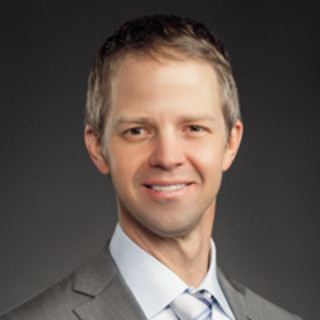In a previous piece, I discussed the perils and pitfalls of creating and accrediting a new program for fellowship training at a nonacademic center. I am happy to report that we did manage to achieve that accreditation and were able to host our first set of applicants.
As I had not conducted or participated in this process since I was myself an applicant 10 years ago, I had the unique opportunity to see the application, interview, and upcoming match process with fresh eyes. Admittedly, I was also apprehensive about how a new generation of applicants would view our program. Since the program is both small and new, it felt like a referendum on myself personally and the team we had built since I arrived here in my first job after fellowship. Of course, it also did not help that alphabetically, we would be listed next to the Mayo Clinic on the program list.
I reached out to a friend and colleague, who was a new surgeon, for some advice and support. Since this was a ski town, I had never worn a suit personally or professionally within the city limits, and I thought it might be nice to offer casual interviews — jeans, fleece, shoes with decent traction on ice.
My rationale was that at this point of their academic careers, anyone applying could manage to get into professional attire and appear presentable for a few hours. I did not see this as a means of separating the wheat from the chaff in any meaningful way, and besides, we had been blessed with record snowfall, making heels and loafers both impractical and dangerous. His response was concise and crushing.
“Terrible idea.”
“How so?” I prodded.
“People will be confused. They will fear that someone will wear business attire anyway and stand out, or that this is actually a ruse.”
A few weeks later, there I was, in front of a room of eager faces. I was awed simply by their presence. I could not shake the notion that these people left busy jobs as residents and traveled from all over the country to sit down with us for 15 minutes apiece. I found it very humbling.
Still, I could not help but ask.
“You guys all look very professional, thank you for being here. Before we begin, I would like to ask, how many of you would prefer to interview in casual attire?”
Without hesitation, every hand in the room shot up.
In any interview, there is a mismatch between the people seated on each side of the table. However, the question on everyone’s mind, that ironically seems so elusive, but is actually paramount to all human interaction, is this: Who is this person, really, and what do they want?
This part is easier for me as a fellowship director. Perhaps in contrast to medical school or even residency applications, fellowship candidates tend to have a better sense of who they are and what they want out of their career.
This is why, for both programs and candidates alike, the importance of “fit” trumps formality. The question on the top of my mind in every interaction may not be completely fair, but is simple: Could I see myself in an OR with this person every Tuesday (my OR day) for a year?
Below is a list of lessons learned from a day of getting to know total strangers. I hope they are helpful to both nervous applicants and those who frighten them.
1) Good news! Applicants are uniformly and without exception bright and qualified! Have no fear, the future of medicine is safe. This was followed quickly by the sobering realization that I may not have qualified for my own program.
2) In the modern era, letters of recommendations, hobbies, and personal statements matter more than grades, research, and pedigree — at least at our place. This deserves some clarification and qualification.
a. The de-emphasis and even absence of standardized test scores has merit, but it also has unintended consequences. The concern when I applied was that it was more “who you knew” than “what you knew.” This could easily lead to cronyism and favoritism, which objective measures, like test scores, pushed back against. While we are a long way from a utopian meritocracy, in the absence of objective measures, the pendulum will swing toward more subjective measures, like letters of recommendation.
b. Faced with an enormous stack of applications and a mantra of “who is this person?” I found myself looking at their hobbies. If you listed snowboarding, you would probably get a closer look than if you listed scuba diving, considering we live in the mountains.
c. Many personal statements could use work. Nonetheless, there are some real gems buried in there if you are willing to look. If a person can write, you can tell a lot about who they are.
3) In-person interviews are preferred by applicants and faculty, and virtual interviews put those applicants at a disadvantage relative to in-person. There is something about showing up that inherently says, “I really want to be here.” It’s a bias that is hard to shake.
4) The return of the social event, after COVID. The event changed the rank order relative to the interviews alone. Personality appears, and at risk of sounding redundant, people act more themselves when not wearing business attire.
5) Where you see yourself in a career matters greatly. Some programs will naturally set you up better for a private versus academic versus privademic career, and it’s important to be honest, at least with yourself and hopefully with us, about this.
6) Despite the above bits about honesty, this is, apparently, still a game. Applicants do not completely trust the faculty, and I suppose, by admission, the converse is probably true, despite all of our best efforts.
The last point came home to me at the end of the social event, when the PA I had worked with for years came over to tell me that most of the applicants asked her, “So when does he actually hand over the knife and let us operate?” This made me laugh at my own naivete since I took great pains to answer this in detail in every interview.
In the quiet aftermath, I realized this brought me back around to the beginning and made me wonder, “Can I actually trust that they all want to show up in jeans and a fleece?”
I’m still not sure.
What tips do you have for interviewing fellows? Share in the comments.
Brian Gilmer is an orthopaedic sports medicine surgeon in Mammoth Lakes, CA and Reno, NV. He is faculty for two sports medicine fellowships and will not be requiring anyone to wear business attire next year. Dr. Gilmer is a 2022–2023 Doximity Op-Med Fellow.
Image by Unitone Vector / Shutterstock







